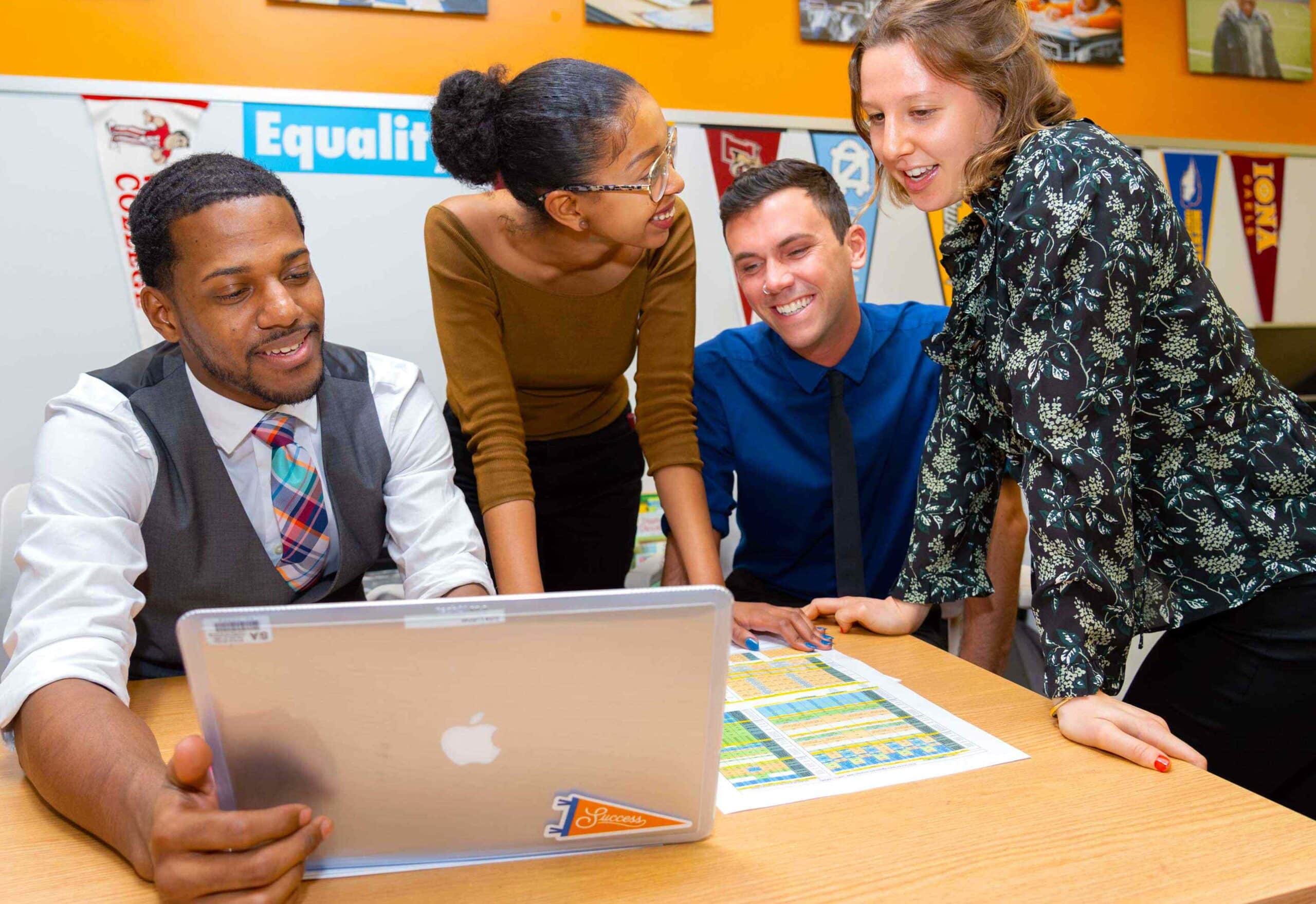At Success Academy, we believe that students are capable of mastering rich historical content and that the best way for them to do that is through inquiry learning. We expose students to primary sources at an early age and ask them to wrestle with both the meaning of particular documents from the past and also big historical questions, including the rise and fall of civilizations, the origins of war and the settlement of peace, the evolution of the role of government, and the economic and social motivations of global events.
As a history teacher, your job is to guide scholars as they evaluate primary and secondary sources. You must help them build historical arguments, marshaling specific evidence to support their historical claims. Fundamentally, your role is to teach scholars how to think historically, not what to think. We present scholars with a diverse range of voices and source material in our curriculum to dispel any one-sided story of history, and we expect scholars to evaluate these competing narratives to have a broader and more complete understanding of the past.
Your role is also that of a content expert and facilitator: You must demand nuanced thinking that acknowledges multiple points of view, evaluate scholar arguments, ask thoughtful questions, and expect scholars to use accurate historical evidence to defend their ideas. While you are entitled to your own interpretation of history outside of the classroom, you must guard against imposing your personal beliefs on scholars or disregarding arguments that challenge your worldview.
This inquiry-based approach to history requires that you embrace mastery of content. It is critical that your scholars understand key dates and the chronology of major historical events in order to unpack larger political, social, economic, and cultural ideas over time.
An inquiry-based method for studying history also demands that scholars avoid presentism — looking at the world through our current values and morals. Instead, they must seek to understand how people thought and acted in the past. You must consistently challenge scholars to study the source of historical evidence and to consider how the context, audience, purpose, and period influenced individuals and societies through time.
And of course, the study of history requires scholars to read critically, drawing upon evidence to construct convincing arguments and then expressing those arguments clearly both orally and in writing. So history teachers are literacy teachers too!
